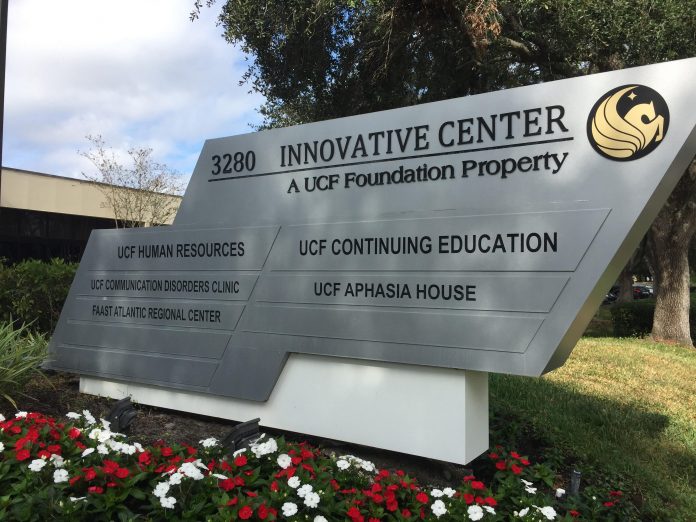
It was early afternoon on Dec. 1 when the University of Central Florida Adaptive Community Theater met at the UCF Aphasia House.
The program, consisting of five student volunteers, two theater directors and the program coordinator, met with patients of the Aphasia House to interview them and learn their stories. They will be putting on a production based on the stories of these people in April, and have started practicing for the show.
Along with the volunteers who are reading the stories, one patient, Annette Sutton, decided she would like to perform her story as well. Her lines are at the end of the production, and as her cue comes closer, she shuffles nervously in her seat, reading over her script.
She read her lines carefully, working through each word. Applause filled the living room as she finished.
“I was very nervous,” said Sutton. “It said a lot about me.”
Sutton suffered a stroke on April 10, 2004. After 46 days in the Florida Hospital, she was back home living a completely different life. The stroke had debilitated her right arm and leg, and she was unable to speak.
Seven years ago, Sutton started coming to the Aphasia House, a UCF facility for people suffering from communication disorders. She began speech therapy at the house five years ago, and can now communicate full sentences.
Watching Sutton and hearing her story, volunteer Tijana Radojevic was brought to tears.
“I can’t even describe how I felt,” the junior psychology student, said. “It just made me emotional that somebody like that is determined and they know to just keep going. It’s inspiring.”
Radojevic was one of a group of students who interviewed Sutton for the production.
“I just love her attitude,” she said. “It makes you happy being around her.”
Radojevic is one of five volunteers of the UCF Adaptive Community Outreach Program, which works with neuro-atypical patients to participate in different activities fit to their needs, such as sports, theater and choir. While the sports and choir divisions have not yet gained enough participants, the theater division has worked with the Aphasia House patients to create the production.
The production will be performed as a part of UCF Celebrates the Arts in April. The volunteers and Aphasia House participants will perform their final piece at the Dr. Phillips Center for the Performing Arts in downtown Orlando.
“It’s so funny because I thought it was going to be most meaningful to the participants that we’d be telling their stories,” said Dr. Megan Sherod, a UCF neuropsychologist, clinical associate professor and founder of the outreach program. “But I actually think it’s been more meaningful to the volunteers to make those connections. I feel like the stories resonate with them.”
Volunteer Christina Mann also interviewed patients and is participating in the production.
“Loving life is very important,” said Mann, a junior interdisciplinary studies major. “When you see that from an individual who is just so passionate about living, that makes you want to live to your fullest and be a better person and be more thankful.”
Both Mann and Radojevic see this passion in Sutton, who now lives her life by new rules.
“Patience, patience and patience,” said Sutton in her script. “Now my new hobby is to never give up on my recovery and never stop living.”



